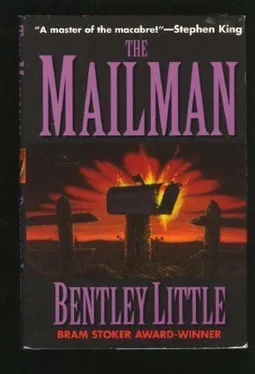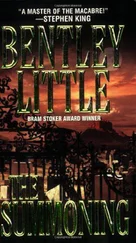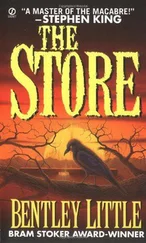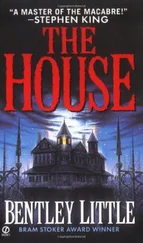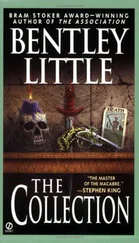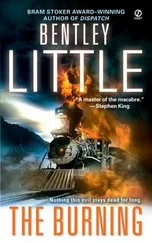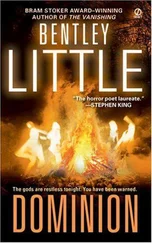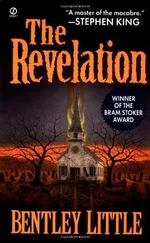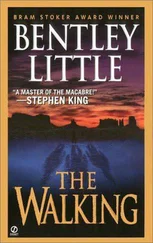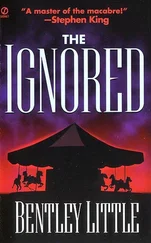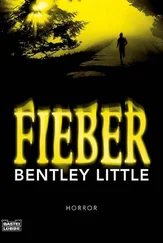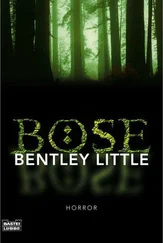She pointed toward a selection offileted trout on ice behind the counter.
"Fresh catch?" she asked.
Todd nodded silently.
Her unease increased, and she said quickly, "I'll take three large fish."
The storekeeper opened the back of the counter, pulled out three trout, and placed them on the scale. "Tell your husband I don't appreciate what he's doing," he said.
Tritia frowned. "What are you talking about? What is he doing?"
"Tell him I don't appreciate it at all."
"Don't appreciate what?" Tritia stared at him. "Todd, tell me what's going on here. I don't know what you're talking about."
His reserve broke. He smiled at her as he wrapped the fish, and there was sadness in the smile. "I know you don't."
"Todd?"
"I believe you. Otherwise you wouldn't be here." He gestured around the empty store. "You're my first customer today."
"What's wrong?" she asked. She leaned forward over the counter. "Is it the mail?"
His face grew stony, cold. "That'll be three-fifty," he said.
"Todd?"
"Three-fifty."
She paid for the fish and walked out of the store. As she backed up in the parking lot, she saw him standing in the doorway, staring after her. It looked as though he was crying.
28
Billy sat in the darkened living room watching TV. _Dick Van Dyke_ segued into _Andy Griffith_, which segued into _The Flintstones_, which segued into _The Brady Bunch_. There was something comforting about the unchanging characters of the people on television, a reassuring element in the familiar plots and predicaments of the shows. Outside, things might be getting stranger, more chaotic. But on TV Mike and Carol Brady were still good-naturedly understanding parents trying to quell a war between the sexes that was brewing between their children.
A commercial came on and Billy got up to get something to eat. He had been glued in front of the TV set for most of the past three days, and though he enjoyed watching the shows, he was starting to feel a little restless and stir crazy. He also felt a little guilty. His parents had never let him watch this much television before, and he could not help feeling that he was doing something wrong, that he should be doing something productive instead of wasting his time vegetating in front of the tube.
But his parents didn't seem to care. They were too preoccupied with other matters. His dad had not even commented when he'd walked through the house a few minutes ago, had not even seemed to notice that he was there.
Billy made himself a peanut-butter-and-jelly sandwich, then moved back into the living room and sat down in his chair before the TV. He had tried finding other things to do the past few days, but had been spectacularly unsuccessful. He had called everyone he'd known, asking if they wanted to go biking or go swimming or come over to The Fort, but his friends either weren't home or didn't want to talk to him. He had ridden by himself to the hill above the dig, but he knew without venturing down the slope that the archaeology students had gone, that the dig was over. He had pedaled as quickly as he could back toward home. The hill frightened him.
He wondered what Lane was doing.
He found himself thinking a lot about Lane lately, wondering how this estrangement could have happened to the two of them. He was aware that friendships often ended quickly and bitterly. He remembered how he and Frank Freeman, his best friend from fourth grade, had broken up after a relatively minor argument, and how alliances were quickly shifted, effectively redrawing the social map of the playground. He and Frank had ended up enemies, hanging out with rival factions of students, never missing an opportunity to hurt each other as deeply as possible.
And no one knew how to hurt more than an ex-friend.
But he and Lane had been buddies for a long time, had weathered rights both minor and major, and had still remained friends. It was hard to believe something like this could happen.
But Lane had changed.
A lot of people had changed.
_The Brady Bunch_ ended and Billy switched the channel to the Flagstaff station to watch _Bewitched_.
He finished his sandwich, wiped his hands on his pants. He had never thought this was possible, had never thought this would happen, but for the first time in his life he was looking forward to the end of summer. He could not wait for the start of school.
Doug sat on the porch thinking about the mail. Brooding about the mail.
This morning, he had received a slew of returned envelopes, some of them bills made out weeks ago, stamped with the notice "Not Deliverable as Addressed."
There had also been an envelope addressed to Tritia , written in a flowery hand, smelling of perfume, which he had torn up and thrown away without opening.
The walk to the mailbox was really frightening him, he realized. Much as he tried to hide it, much as he tried to deny it, he felt nervous walking down the drive and was now almosthypersensitively aware of the bushes and trees on the way to the mailbox, knowing they could be used for possible hiding places.
He thought of moving the mailbox to a spot right next to the door, like mailboxes in the city, but he rejected that idea immediately. He did not want the mailman coming up to the house, coming that close to Tritia and Billy. He also thought of taking the mailbox down entirely. If they had no mailbox, they could get no mail, right? But that was not only cowardly, it was crazy. What the hell was he doing hiding from the mail? Did he think if he ignored the problem or tried to avoid it that it would go away?
Tritia pulled into the driveway. Doug looked away, toward the trees. He heard the muted clicking of the emergency brake being put on, the slam of the car door, followed by the sound of Trish's steps on the wooden porch. "I'm back," she announced.
When he did not respond, she walked over to him. "I said I'm back."
He looked up at her. "You want a medal?"
Her expression went from anger to hurt to a calm neutrality. He felt guilty and looked away. He didn't know why he was being so mean to her. She was only trying to be friendly. But there was something about her Pollyanna attitude, her pretending that everything was okay, that grated on him and made him mad. Made him want to hurt her.
He had been mad at her a lot lately, though he didn't really understand why. "We're having fish tonight," she said. "Barbecued trout. I'll let you set up the barbecue."
"Did you buy any charcoal or lighter fluid? We're all out."
She shook her head. "Forget it. I'll broil it, then."
He stood up. "No. I'll go buy some. I want to get away from the house for a while anyway."
Tritia put a hand on his shoulder. "Are you all right?"
He stared at the hand, surprised. It had been days since they'd touched each other. He looked into her eyes and his voice softened. He felt some of his hostility, some of his tenseness, dissipate. He knew she was trying hard not to fight with him. "Yeah," he said. "I'm fine."
"Okay." She opened the screen door. "Better put some gas in the car too.
We're almost out."
"Yeah."
As he walked down the porch steps and across the gravel to the Bronco, he heard the television shut off, heard Trish talking to Billy. The sound of her voice, used not in anger but in concern, was nice and familiarly comforting, like the voice of an old friend not heard in a while, and suddenly he felt much better.
The Bronco was nearly out of gas, the fuel gauge on empty, and the first thing he did was stop by the Circle K and put in five dollars' worth.
The second thing he did was drive to Howard's house.
He pulled to a stop in front of the low ranch-style home. It now looked definitely abandoned. The lawn was tan, even the weeds dried up and dead. Next door, a man was just getting out of his pickup and Doug quickly got out of the car and tried to wave him down. "Hey," he called.
Читать дальше
